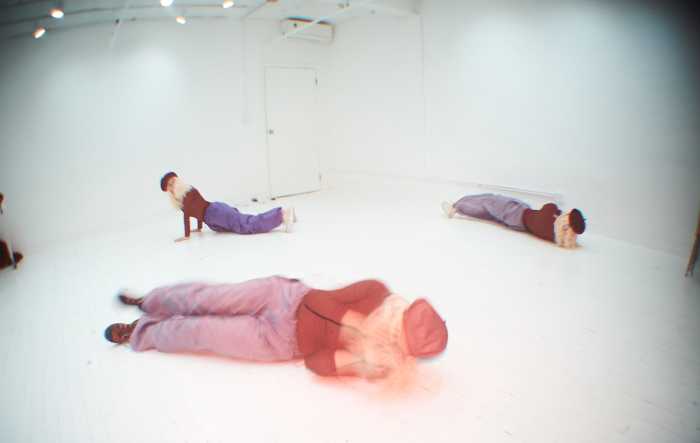By Ayala Ben-Yehuda
Councilman Tony Avella’s recent campaign to hold on to his northeast Queens seat revived a two-year-old effort on the part of Republican state Sen. Frank Padavan to pin the blame for the closing of the College Point ballfields squarely on the Democratic incumbent.
Padavan (R-Bellerose) urged the Queens district attorney to file criminal charges against officers of the College Point Sports Association back in 2001 after five contractors were indicted for illegally dumping debris on the group’s ballfields.
He had earlier sent letters to state Attorney General Eliot Spitzer and the city Department of Investigation asking for a probe into the association, which oversaw sports programs for more than 1,300 children in the College Point area.
The College Point ballfields were padlocked in October 1997 when illegal construction waste was found on the grounds used for baseball, football and hockey. The fields remain closed today.
“I feel that additional indictments should take place regarding the sports association and its officers at the time regarding these contracts as well as subsequent improprieties and the incidence of mismanagement of investments and equipment by the association,” Padavan wrote in a letter to Queens District Attorney Richard Brown in November 2001.
But the Queens DA has not found any grounds on which to prosecute the sports association, according to a source familiar with Padavan’s request, and the attorney general’s office has not taken any public action.
“The DA was investigating the entire matter and we felt that inquiry should be expanded to find out what happened to this money,” Padavan said in an interview with the TimesLedger last month.
Padavan, whose district covers the College Point ballfields, had approached Spitzer a month before.
“It is my understanding that the president and officers of the association or any other not for profit corporation are required to operate in a prudent and conservative financial fashion,” he wrote to Spitzer on Oct. 12, 2001.
Last fall Padavan again renewed his call for a probe into the sports association’s financial dealings under Avella (D-Bayside), who was president of the group at the time the dumping occurred in 1997.
Padavan, Queens’s most powerful Republican official, acted as Avella was seeking re-election to a second term and facing a heated challenge from Republican Phil Ragusa. Avella also represents the area covering the ballfields.
In October, the city filed a $16.5 million civil suit against Enviro-Fill, the ballfields’ developer at the time as well as its officials, the College Point Sports Association and the owners of demolition companies in an attempt to recoup the costs of removing the debris, regrading the land and building news sports fields.
But the Queens district attorney’s office has not found any criminal activity on the part of the sports association, a source familiar with the inquiry said last month.
“I don’t know that we’re going to be able to do anything more with it,” said the source, who declined to be identified.
A spokeswoman for the DA said “the criminal prosecution of this case has been concluded.”
Padavan said in one of two December interviews that he had not asked Brown or Spitzer for an update on his request for an investigation in 2001, saying it would be inappropriate for them to fill him in.
“When something is in the hands of an investigative body, the ball’s in their court,” Padavan said.
Padavan said he was continuing to voice concerns about the sports association because over the years he had not received answers to his questions surrounding the ballfields.
Avella maintained in interviews last month that the sports association was a victim of risky investments it made in an attempt to raise money for repairing the ballfields beginning in 1989. He also said the Republicans were trying make political hay out of the sports group’s finances.
Avella said the attorney general’s office contacted him “within the last month before the election” requesting financial documents on the sports association’s investment account.
A spokeswoman for the attorney general would not say whether an investigation into Padavan’s inquiries was currently underway.
“They’re just going to try to use this against me for my entire political career,” Avella said of his political opponents.
Padavan had “never even asked the association or me directly” about his concerns, he said. “It’s always a political thing and in the press.”
History
The College Point Sports Association hired Enviro-Fill, a Flushing company, in 1995 to regrade and renovate a 22-acre site along Ulmer Street, 23rd Avenue, 28th Avenue and Linden Place that was used by five sports leagues operated by the sports group.
Enviro-Fill was to provide the improvements at no cost to the sports association, which at the time leased the property for $1 from the city, in exchange for allowing the contracting company to dump clean fill on the site.
Under its contract for the work, Enviro-Fill provided the sports association with money to hire a monitor to oversee the dumping and supervise the work.
The city Department of Sanitation, which was charged with overseeing the work on the fields, padlocked the site in October 1997 after it discovered tons of construction debris on the site.
The Sanitation Department took control of the site in early 1998 after an administrative law judge found Enviro-Fill guilty of dumping 20,000 tons of illegal construction debris on the site.
Over the next six years, the job of repairing the fields passed between an alphabet soup of city agencies as efforts floundered to clean up and rebuild the fields.
“With all the amount of time that it took, it was a disaster,” said Sabina Cardali, a College Point civic leader and TimesLedger columnist.
At one point, the city twice defied a court order to retest the fields for contaminants, further delaying work — only to have city and state environmental agencies determine that no contaminants were present. All the while, the fields sat idle with the 1,300 children who were members of the sports association teams having to scramble to find somewhere else to play.
In the latest development in December, the city fired ADC Contracting, the last company to work on the fields’ renovation, for what the city said was the contractor’s faulty work and failure to complete the job on time. No replacement has been named.
Two Enviro-Fill officials and three officials of demolition and recycling companies pleaded guilty to criminal charges of illegal dumping brought by the Queens district attorney. The demolition company owners — Frank, Anthony and Joseph Casalino — were sentenced Jan. 8 to pay $250,000 in restitution.
The city said in the civil suit it filed in October $10.6 million was needed to remove the debris and $5.8 million was needed to regrade the land and build the athletic fields.
“CPSA, one of whose officers was paid to monitor the dumping of fill, was negligent in its oversight,” the city lawsuit said.
The suit was filed two days before Republican Mayor Michael Bloomberg brought Ragusa, Avella’s council opponent, to the steps of City Hall for a public endorsement.
Financial mismanagement
In a Nov. 3, 2003 letter to the editor sent to the TimesLedger Newspapers, Padavan said “financial mismanagement on the part of the College Point Sports Association, under the leadership of Councilman Tony Avella (D-Bayside), causes work stoppages and construction delays.”
The letter came in response to an earlier editorial in which the newspaper criticized the city for suing the sports association. Padavan raised similar concerns in an Oct. 22 Queens Courier article in which he was quoted as questioning the stock losses and legal expenses on the sports group’s tax statements.
In a later interview with the TimesLedger, Padavan said his charge of financial mismanagement was based on the selection of Enviro-Fill in 1995.
That financial mismanagement led to work stoppages and construction delays “is a matter of public record,” Padavan said. He contended that the sports association’s decision to sign a contract with Enviro-Fill constituted financial mismanagement.
The Queens senator also said the Giuliani administration had raised the issue of the sports association’s finances when elected officials asked them to provide money for the ballfields.
Padavan produced a Feb. 15, 1995 proposal letter from Enviro-Fill to Avella in which a company official discussed the transfer of as much as $70,000 to the sports association as a total deposit during various phases of the work. Upon Enviro-Fill’s receiving an agreement to proceed and the necessary permits, the initial deposit would be $20,000, the document showed.
“At the point (at) which security exceeds the risk of the association there should be a reduction in the escrowed funds which can be determined by the attorneys,” the proposal letter said. “Upon completion of the contract the association will retain the entire $20,000 donation for use as it deems responsible to be in the best interest of the children of College Point.”
Asked about the agreement, Padavan said: “I don’t what kind of money changed hands there.”
In response to the city’s lawsuit, Avella said the sports association was a victim of an “unscrupulous developer,” Enviro-Fill, and the city’s failure to oversee the project.
“We were assured by the Department of Sanitation that they would be monitoring,” Avella said. “So why didn’t they do their job?”
He said Enviro-Fill put money into an escrow account commensurate with the amount of fill it used to regrade the site as part of the agreement in case the project was not finished.
Fred Mazzarello, president of the College Point Board of Trade and at one point a community advisory board member of the association, said last week he was concerned about how the sport group’s finances and the ballfield work were handled under Avella’s leadership.
“There was a lack of oversight, there’s no doubt about that,” Mazzarello said. “It boils down to bad management.”
But Jerry Castro, president of the College Point Little League and a current sports association board member, defended Avella and the association.
“I don’t know if it would be accurate to say (Avella) mismanaged it,” said Castro of the ballfield project. He maintained the city was “shirking its responsibility” by not monitoring the dumping more closely.
“What do a group of guys in a sports association know about a landfill?” added another current sports association board member, Tony Mongeluzzi.
Asked whether the DA’s office had investigated whether there was any impropriety in the deal between Enviro-Fill and the sports association, the source familiar with the DA’s inquiry said “there was definitely an investigation of that. We haven’t been able to prove it.”
The lure of the stock market
Over the past two years, Padavan has repeatedly raised questions about $84,000 lost by the College Point Sports Association in the stock market. Avella said an investment account was set up by the sports group in 1989 to finance reconstruction of the ballfields.
“I want to know why (Avella) authorized questionable stock investments, which essentially squandered more than $84,000 in funds raised by the hardworking parents and children of College Point,” Padavan said in his letter to the TimesLedger in November.
Padavan attributed the loss of more than $84,000 in the stock market to “either culpability or stupidity” in a subsequent interview.
“When you’re the president of an organization,” said Padavan, “you have to treat it like it’s your own money and watch it like a hawk.”
Padavan said “these questions were never answered. Why not tell the truth?”
During Avella’s campaign for the northeast Queens council seat in 2001, he responded in two separate candidates’ nights to questions about the stock loss.
“The financial loss was the result of a risky investment account established by the association to pay for the ballfields project long before I got there,” Avella told a forum hosted by the East Bayside Homeowners Association on Sept. 4, 2001.
“When I came on board, I did not like the fact that they had the account, but I was outvoted,” he said at the time. “The person in charge ran that account into the ground. It was wrong and showed a serious lack of judgment.”
Avella said in a recent interview that the sports association opened an investment account with Charles Schwab in 1989 before he joined the board of the sports association.
Up to that point, he said, the organization subsisted largely on bake sales and yard sales — efforts that could not produce the funds needed to renovate the ballfields.
So in 1989, the association opened a risky “margin” investment account administered by its then vice president, Hugh Carlin, a former stockbroker and veteran football coach who would later serve as the monitor on the Enviro-Fill project.
“Some years he made money, some years he didn’t,” said Avella. “He was buying and selling constantly.”
Tony Cusenza, a longtime member of the sports association’s board, said Avella did not know about the account when he became president of the group.
The Charles Schwab form filled out by the sports association in 1989 to open the investment account showed two people as signatories: Carlin and the association’s treasurer at the time, Raymond Boudiette.
Avella said Boudiette left the organization around the same time he joined the group and he understood that Carlin alone was left with signatory power on the account. Avella said he was not given signatory power on the account and that the other board members were in favor of keeping it because they thought it was doing well.
“I didn’t like it, but the others did,” Avella said.
Avella said Carlin would give regular reports to the association on the status of the account, but the regularity of the reports began to fall off as the organization shifted its focus to the ballfields’ construction and as the account lost money.
“He had told people the account was doing fine,” Avella said.
Cusenza said the association was not meeting on a monthly basis.
“The meeting was more on a needly basis,” Cusenza said. “If we would say, how are we doing financially, (Carlin) would say it was doing great. That was our problem. We never doubted one another.”
Repeated efforts to reach Carlin were unsuccessful.
It was not until late 1997, when Carlin resigned following the discovery of the material dumped on the site, that Avella learned what was happening with the account, the councilman said. Avella signed the sports association’s tax return in 1998 that showed a loss of nearly $85,000 in investments for 1997.
“I was devastated that we didn’t know that this had, in fact, occurred,” Avella said.
Mazzarello said Avella should have “smell(ed) a rat someplace.”
“How can you lose figures like $80,000 in the stock market when according to one of my lawyers, it’s illegal for a non-profit organization to gamble with the organization’s money?” Mazzarello asked.
A source familiar with the DA’s investigation said Brown’s office had looked into Padavan’s concerns about the stock losses.
“It’s hard to prove that it’s anything other than poor investments,” the source said. “That’s not necessarily a crime.”
He added there was “no indication on the stock trades that anybody inappropriately benefited from that.”
Legal fees
In his letter to Spitzer on Oct. 12, 2001, Padavan asked the attorney general to investigate, among other things, “exorbitant legal fees” incurred by the sports association. The organization’s tax return for 1998 — the year an attorney represented the group in a series of legal battles with the Sanitation Department over the closing of the ballfields — shows the group spent $31,375 in legal fees.
But Avella said most of that money actually went to pay for lobbyist Robert Unger, who “started a dialogue” with the Giuliani administration on behalf of the sports association to either get the group’s lease back or make the site a city park.
The city returned the sports association’s $1 rent payment check in May 1998 over the group’s hiring of Enviro-Fill and liability concerns. If the group had not hired the lobbyist, said Avella, the city would have sold the sports fields for commercial or industrial development.
“Was it worth the money? Absolutely,” Avella said.
The front loader
Padavan asked both the Queens DA and the attorney general to investigate “capital equipment losses” and “mismanagement of investments and equipment by the association” in letters sent in 2001.
Padavan said in an interview the theft of a $32,000 front loader was “all part of a significant amount of money raised by the parents and the kids that disappeared in a variety of ways.”
Avella said the front loader, purchased from the escrow account set up between the association and Enviro-Fill, was stolen from the property after the Sanitation Department had padlocked the site in 1997 — a common problem on construction sites, he said.
“Why Senator Padavan is bringing that up is a good question,” said Avella. “Why doesn’t he go to the Department of Sanitation?”
The sports group’s Mongeluzzi said attempts to recoup money from the insurance company for the stolen front loader was “an ongoing fight.”
“They closed down the fields completely,” he said of the Sanitation Department. “It gets stolen from right underneath their eyes?”
“They stopped me from walking onto the rink with 5- and 6-year-old kids.”
“Political nonsense”
Avella said during his re-election bid last year, the Republican opposition had used “carefully constructed ambiguities and lies” about his management of the sports group to mount “the most negative, worst mud-slinging campaign” he had ever seen in Queens politics.
“Unfortunately, there’s been so much political nonsense in this whole thing, it’s been disgraceful,” Avella said.
On Election Day, Avella held onto his seat with 62 percent of the vote. Some voters interviewed by the TimesLedger said they thought Ragusa had been too negative.
The sports association’s Cusenza called Padavan’s comments on Avella’s stewardship of the group before the election “just plain dirty politics.”
“For someone being a state senator I don’t see him as the front runner in trying to finish those fields,” Cusenza said. “I wish that instead of bickering on the sidelines, we can find the truth and put this to rest.”
But Padavan maintained that “this is not politics.”
Citing a bipartisan letter he signed along with several other Queens legislators in January 2000 updating the community on the ballfields project, Padavan said “any implication of that is to me offensive.”
Reach reporter Ayala Ben-Yehuda by e-mail at news@timesledger.com or call 718-229-0300, Ext. 146.


































